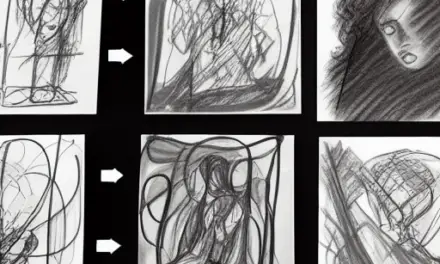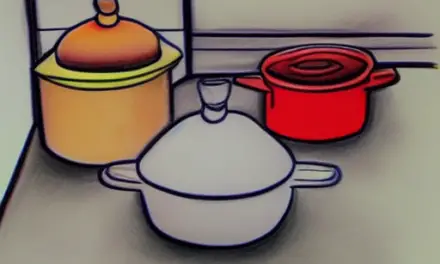A Dosha is one of three bodily humors that make up one’s constitution. The three Doshas are the unseen energies that govern our body’s functions, and create balance or imbalance. They give us unique mental and physical characteristics making us unique. This is according to the Ayurvedic traditional system of Indian medicine. The theory cites that health exists when there is a balance between three fundamental bodily humors or Doshas called Vata, Pitta and Kapha, each of which represents two of the five universal elements – a combination of either air, fire, water and earth.
In Ayurveda, health is defined as the dynamic state of balance between mind, body and environment. It helps us identify our mind-body type and maintain a vibrant and joyful state of health. The Doshas express particular patterns of energy, unique blends of physical, emotional and mental characteristics. Doshas govern our health, diseases and cure for any disease. The combination of the three Doshas makes us different and unique. The three can be combined in ten ways and form ten different body and behavioral types.
Ayurvedic philosophies help us align our diet to our Dosha body type, also known in the mainstream as the dosha diet. These three Dosha types need to be balanced. When any of the Doshas become aggravated or imbalanced, our mind-body health can be challenged. Ayurvedic practitioners can help you identify your predominant Dosha and potential imbalances in order to keep your mind-body balance in check. Dosha types display varying characteristics in different individuals. The Vata are sensitive to light, prefer warm and humid climates and have dry skin. The Pitta have medium and muscular bodies, are irritable and hard working and prefer cold climates. On the other hand, the Kapha are heavy build, stable, easy-going, have Oily skin and prefer warm and dry climates.
Another way of determining your Dosha is by taking the Dosha quiz. This will be judged by your answers. The test will give you an idea of how balanced your health is at the moment. Most likely you will find out that you are a mix of the Dosha but obviously one must dominate. Each Dosha has its merits and demerits. Knowing your Dosha will make you understand your body’s needs according to your Dosha and make positive changes in your life and give you the right balance. Use characteristics of your Body frame, Body weight, Skin, Sweat, Hair, Nose, Lips, hips and menstrual cycle for women. Let your choices be based on your observation noted over a long period of time, rather than the present time. Don’t limit your choices, you can select choices from more than one column, so long as they both describe you well. If you are taking the Ayurvedic Dosha questionnaire online, remember to click on the calculate results button on the website and see your results. You may have Dosha predominant, a few will have two equal Doshas generally fewer people will have the three Doshas in equal proportions. The effectiveness of Ayurvedic is based on treating people individually. Your results will be very different from your siblings’ results. Record your characteristics and compare them with the actual Dosha findings for example, vata are thin build, pitta are medium build and kapha are large build. Vata have thin, dry skin type, pittas have smooth, combined skin and the kapha have a thick oily skin and so on. Results will differ slightly with age and gender.
Imbalances of any Dosha can occur due to lifestyle factors regardless of the body type. Ayurveda therapists repair imbalances naturally with herbal medicines, warm and oily massages, yoga and dietary change. Ayurvedic diets identify six tastes which affect our mind-body state by aggravating particular Doshas. The tastes include sweet, salty, sour, bitter, pungent and astringent. Having excess of the Doshas will impact on the characteristics by doing things at large. Someone with pitta excess will prefer to have extra warm clothes even when it is hot. When vata is aggravated, your body system becomes irregular and depleted. This will definitely affect your weak body organs and tissues. You have vata imbalance if you are constipated, dehydrated, anxious, experience abrupt weight loss, have disturbed sleep, have a craving for warmth and have frequent viral infections. Vata imbalance is mainly caused by excessive consumption of bitter, astringent and spicy tastes. Prevent this by taking boiled starchy vegetables, ripe fruits, warm milk, soupy grains, mild spices and tea.
People with unbalanced pitta become aggressive and irritable. Know that you have pitta imbalance if you have diarrhea, over-sweating, excessive hunger, violent dreams, heartburn and recurring bacterial infections. It is highly believed that pitta imbalance can be caused by excessive consumption of alcohol and taking deep fried salty foods. Foods with sweet, bitter and astringent tastes like raw vegetables, dairy products soupy grains and tea can solve this.
Kapha imbalance results in a mental and physical stagnation. It is caused by excessive food consumption. Signs of kapha imbalance include sluggish bowels, procrastination, excess sleep, weight gain, water retention, craving for warmth and spicy foods and recurring Candida. Light and low-fat diet of pungent, bitter and astringent tastes like boiled or steamed raw vegetables, grains, honey, tea and fat-free buttermilk can restore balance. Doshas are most dominant in our nature. The recessive Dosha becomes less expressed. After undergoing the Ayurvedic test, many people find out that they are a dual type or are one type but with another Dosha out of balance. At times this can be confusing as you don’t know which diet to follow. It is advisable to consult an Ayurvedic therapist who can run a test and recommend a diet for you.

Each and every one of us has a different mind-body type that suits different lifestyle habits. Knowing your Dosha will lead you to eat according to your body type. Also you will find the remedies that work for you. Definitely your health will come into balance, you will have a lot of energy and feel more comfortable. You will finally understand yourself, why you are the way you are and act the way you act. Doshas are in a constant daily and seasonal cycle of increase and decrease, when one gets aggravated it leads to a disease. You need to be in constant balance of your Doshas.
Ayurvedic treatment recommends that you should not consume iced drinks prior, during or after eating to avoid sluggish and ineffective digestion. To restore your holistic health of hips, head and heart, follow the Dosha Diet.












